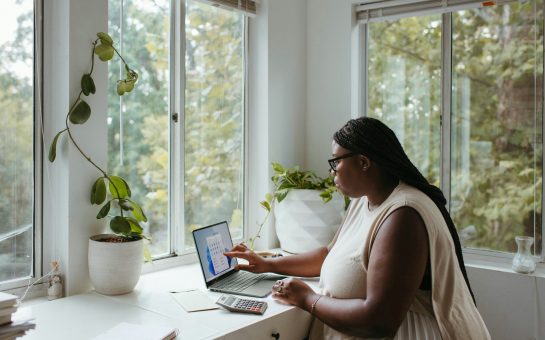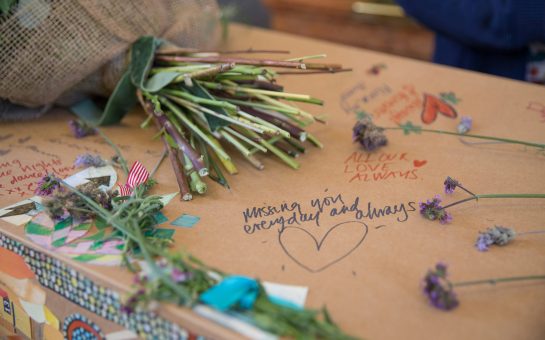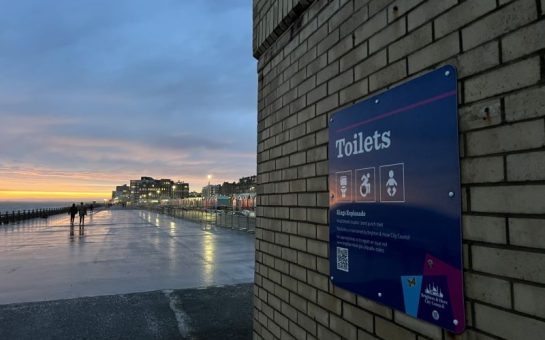![]() By Ellen Halliday
By Ellen Halliday
April 30 2019, 16.05
Follow @SW_Londoner
Louise Winter works in her kitchen from dawn until midnight, arranging funerals over the phone and trying to track down body bags at more than twice their usual price.
In the past three weeks, her work at Poetic Endings funeral directors has tripled, with many more families calling for help whilst mortuaries fill, pews stand empty and hands remain unheld.
Professionals who spend their lives immersed in death fear the loss of time with loved ones will have catastrophic consequences.
In normal times, Poetic Endings help people honour their loved ones however they see fit, whether it’s with a leopard print hearse, Star Wars theme, or just a favourite song played on repeat.
Social distancing and supply shortages mean that’s no longer possible.
Staff and mourners must be kept safe, and PPE is limited despite Ms Winter stocking up as the coronavirus spread in China in January.
Coffins, too, are in short supply.
“A lot of funeral directors stockpiled coffins as though they were buying toilet roll,” Ms Winter said.
“It’s heartbreaking,” she added. “It’s relentless and emotionally exhausting being unable to offer bereaved people the control that they would usually have over a funeral.”
Families have tried to adjust: reading poems, singing songs and coordinating toasts to the loved and lost over Zoom.
Yet technology offers a poor substitute. Grievers stay apart, no flowers are tossed onto the coffin. In some cases, mourners even tuned into the wrong cremation video stream.
Lockdown has also devastated end-of-life care where time and touch are crucial.
The government promised to allow close relatives the chance to say goodbye to dying coronavirus patients, but it remains unclear whether PPE will be supplied for families when doctors lack it.
It also does little to help those who have illnesses like cancer and are unable to see loved ones or receive treatment.
Anna Lyons, an end-of-life doula trained to practically and emotionally support the dying and their families, is caring for someone who has just been diagnosed with cancer but whose treatment will not begin.
Face-to-face, she can gauge whether her clients felt well enough to walk or shower that day; whether they are scared or in pain.
“You can’t fix people who are dying,” she said. “But you can help them explore what matters to them most and enable them to live the life they want – given the circumstances.”
The webcam, she finds, can make them feel even more alone.
Ms Lyons is concerned that the loss of goodbyes and grieving rituals will have long-lasting consequences.
“I think there’s going to be a lot of PTSD and long-lasting trauma for people,” she said.
She often recommends mourners spend time with their loved ones after death, even dedicating a whole day to write them letters.
“It really helps people – especially children – understand that someone is really gone,” she said.
Egham-based doula Katrina Taae believes that the current scale of death, the fact the people are dying in their homes, unexpectedly or without recommended PPE, could mean coronavirus grief is even harder to process.
“There is a tsunami of grief that is going to come across the world,” she said.
As the number of daily deaths from the coronavirus begins to decline, the true cost of lockdown on mental and physical health remains unknown.
According to Cancer Research UK, over 2,300 cancer cases may be going undiagnosed every week as screening remains on hold.
Evidence suggests that those struggling to process grief are more likely to suffer from anxiety and depression, whilst grief makes older people more likely to get ill.
Meanwhile, mourners are saying goodbye however they can.
Colleagues of postman John Brooksbank, unable to attend his funeral because of social distancing, instead lined up their vans in tribute.
John Brooksbank a postal worker of 33 years service had his funeral yesterday.
— Dave Ward (@DaveWardGS) April 22, 2020
Due to social distancing the funeral was very different.
That didn’t stop the convoy of colleagues from Horsham in their vans. Uplifting.
RIP John 🙏🏻 pic.twitter.com/XhlE2QdXSS
On a South London street, neighbours came one by one to leave flowers and foliage on the doorstep of one who had died.
The family had been unable to find a bouquet: one of the many markers of a normal funeral which coronavirus has made scarce.
Yet the offerings brought solace: sewn into hessian and laid over the coffin, they made one of the most beautiful floral arrangements that Ms Winter had ever seen.
“We can’t rely on the usual things that we would do when someone dies,” she said.
“But I have noticed a lot of hope in the ways people have come together to distill the essence of a person – even in the most challenging circumstances.”
Headline image: Toimetaja Tõlkebüroo on Unsplash




